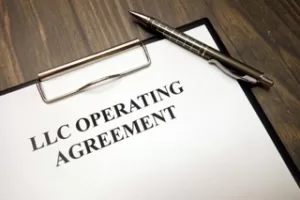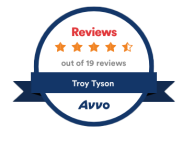If you’re dealing with a legal challenge, you’re familiar with the stress and anxiety that come with such a situation. There are also many unknowns to deal with: a mysterious legal system, complex procedures, unending rules and restrictions. Regardless of what type of legal situation you may be working through, it is best to have an attorney by your side, to guide you through the relevant legal process, and help you achieve an optimal outcome.
One question that you must ask yourself, however, is “how do I choose a good attorney?” … or better yet, “how do I choose the best attorney for me?” This is a very important question to work through, and the decision you make could very well mean the difference between a stellar outcome and a disappointing result in your case. With that question in mind, let’s outline some of the factors you should consider when looking for an attorney:
Integrity
This is a big, big, BIG #1. Although other traits on this list count for a great deal, they mean very little if your attorney cannot be trusted. Trust is the single most important facet of the attorney-client relationship, and it should underlie every communication and every action undertaken by your attorney. The Indiana State Bar and Supreme Court feel so strongly about attorney integrity that they’ve crafted numerous rules of trust that all attorneys must abide by, covering everything from bank accounts to e-mail communications.
How can you judge the level of an attorney’s integrity? It is difficult to know someone’s true character – even people we have known for years occasionally surprise us by doing things we never thought they were capable of. However, there are some tools you can use to gain clues about a lawyer’s true level of integrity. Utilize word-of-mouth: do you know anyone who is familiar with, or has used the attorney previously? What do they say about him or her? Also, technology has provided clients with many powerful crowd-rating tools, which you should make full use of. Sites like Avvo, Martindale-Hubbell, and other ratings websites allow you to see the opinions of many other people who may have used a particular attorney in the past. Additionally, check with your state’s bar association to ensure that your attorney is licensed and in good standing.
Finally, examine the attorney’s public profile: are they listed in primary directories, either online or in print? Do they have an informative, up-to-date website? Are they members of their local chambers of commerce? Do they engage in community affairs or volunteer activities? While none of these points by themselves will provide perfect data on a lawyer’s integrity, viewing all of them together will give you a very good picture of an attorney’s credibility, reputation, and level of community engagement. An attorney who scores high in all of these categories is more likely to be someone who is trustworthy.
Experience/Work Ethic
The next area that you should concern yourself with is the experience of the attorney. Experience is valuable in the legal community, because the complexity of the legal system is often better navigated by attorneys who have mastered it over a number of years. You should seek a lawyer who is not only experienced in general, but experienced in the particular field of law that your issue falls under. The practice of law tends to be very specialized, and a brilliant attorney with 25 years of criminal law experience could very well be helpless in trying to assist you with a child custody matter. Therefore, look for an attorney who can offer you a wealth of the right kind of experience – that is, the kind that pertains directly to the legal challenge you are facing.
This sub-heading also includes the trait “work ethic” for a very good reason. Often, new or otherwise inexperienced attorneys may not have the track record that you’re looking for in a lawyer, but they’re willing to work extremely hard (and often, at a significantly lower cost than their peers) to help your case succeed. There could be a variety of reasons as to why an attorney would take on a case in an area in which they have little experience. Perhaps they are just getting started, and need to build the needed experience. Perhaps they are experts in another area of law, but want to expand their practice into new areas. Perhaps they believe strongly in your case and want to help. In any case, these attorneys should not be overlooked. While most state bars have rules in place to prevent lawyers from taking on cases that are clearly over their heads, these rules usually also allow an attorney to “become competent” in an area that may be new to them, but which they can learn about in a reasonable amount of time. Sometimes, an attorney who doesn’t have a lot of experience, but is willing to work extremely hard on your case and give it priority attention, may end up being a better choice for your situation than a more experienced attorney. With that in mind, do not completely rule out an attorney merely because they are new to practicing in your area of concern.
“Fit”
The term “fit” is used to define a set of qualities that an attorney possesses, that determines whether he or she will be a good match for your case, and for you personally. A lawyer may have a tremendous track record, but if you do not like his personality, or he doesn’t communicate effectively, or he lives three hours away, your case might be hindered. Fit is a very subjective, personal aspect of the attorney search process. Other clients, agencies, and websites can help you determine the integrity or experience of an attorney, but only you can determine whether any particular attorney is a good fit for you, because each situation is so unique. That being said, here are some “fit factors” to consider in choosing your attorney:
- Geography: How close is the attorney’s office? Depending on the type of case you have, and its level of urgency, this could be an insignificant or a major factor. Distance is somewhat mitigated these days with the assistance of technology – phone calls and e-mails will eliminate the need for many of your trips to the attorney’s office. Usually, though, it is best to choose an attorney who works within 30-40 miles of your home or workplace. Having your attorney close by will put you at ease, and lessen the time required in those instances where a trip to their office is required.
- Rates: Be sure to ask for your attorney’s rates in your initial consultation, and get them in clear, unambiguous terms. The cost of representation is, of course, a significant factor to consider in choosing an attorney. Do not make the common mistake, however, of picking the lawyer who quotes you the lowest fee. Quite often, choosing an attorney who charges a seemingly high rate can be in your best interest legally and economically, if he or she has the experience, credibility, and contacts to address your problem quickly and effectively. A lower-priced attorney may not have the same level of experience or skill, and could end up taking longer, or being less effective, than the more expensive attorney. Remember that when it comes to fees, the legal industry is very much like almost every other industry – you usually get what you pay for. Excellent attorneys with long track records and highly-developed skills will naturally charge more than less-experienced or less-skilled attorneys. So, insist on getting full fee information up front from prospective attorneys, and try to be as economical as you can, but do not be put off by rates that seem high to you. If a skilled attorney can bring about a positive resolution to your case in a reasonable amount of time, they might end up saving you significant amounts of time, energy, and money.
- Personality: An attorney’s personality, or how well the two of you “hit it off,” should not be the first thing you look at when choosing a lawyer. You’re not hiring a lawyer to tell jokes, or to keep you entertained with interesting banter. You’re hiring them to resolve a problem for you as quickly as possible, and sometimes, the attorneys who may be most effective at solving problems, may not be the most effervescent people to be around. Some very excellent attorneys may come across as gruff, or rough around the edges. Others may seem overly stern or rules-obsessed. While these aren’t necessarily people you’d want to go to a movie with, they very often are your best friends in a courtroom, or across the table from an adversary. That being said, if you have several good lawyers whom you’ve found to be eligible in all of the other areas, definitely consider the personality aspect, and give priority to the attorney with whom you can converse and communicate most comfortably.
Choosing the right attorney in the midst of a legal challenge can seem like a daunting, overwhelming task. However, by taking your time, doing your homework, and applying the parameters listed above, you can find the right person to represent you effectively in your matter.
Contact us if you have any additional questions or need assistance with a legal matter.
NOTE
This article primarily references Indiana law. Please check the laws of your local jurisdiction if you live in another state.
The articles in this blog are for informational purposes only. No attorney-client relationship is established through the publication of these articles.







